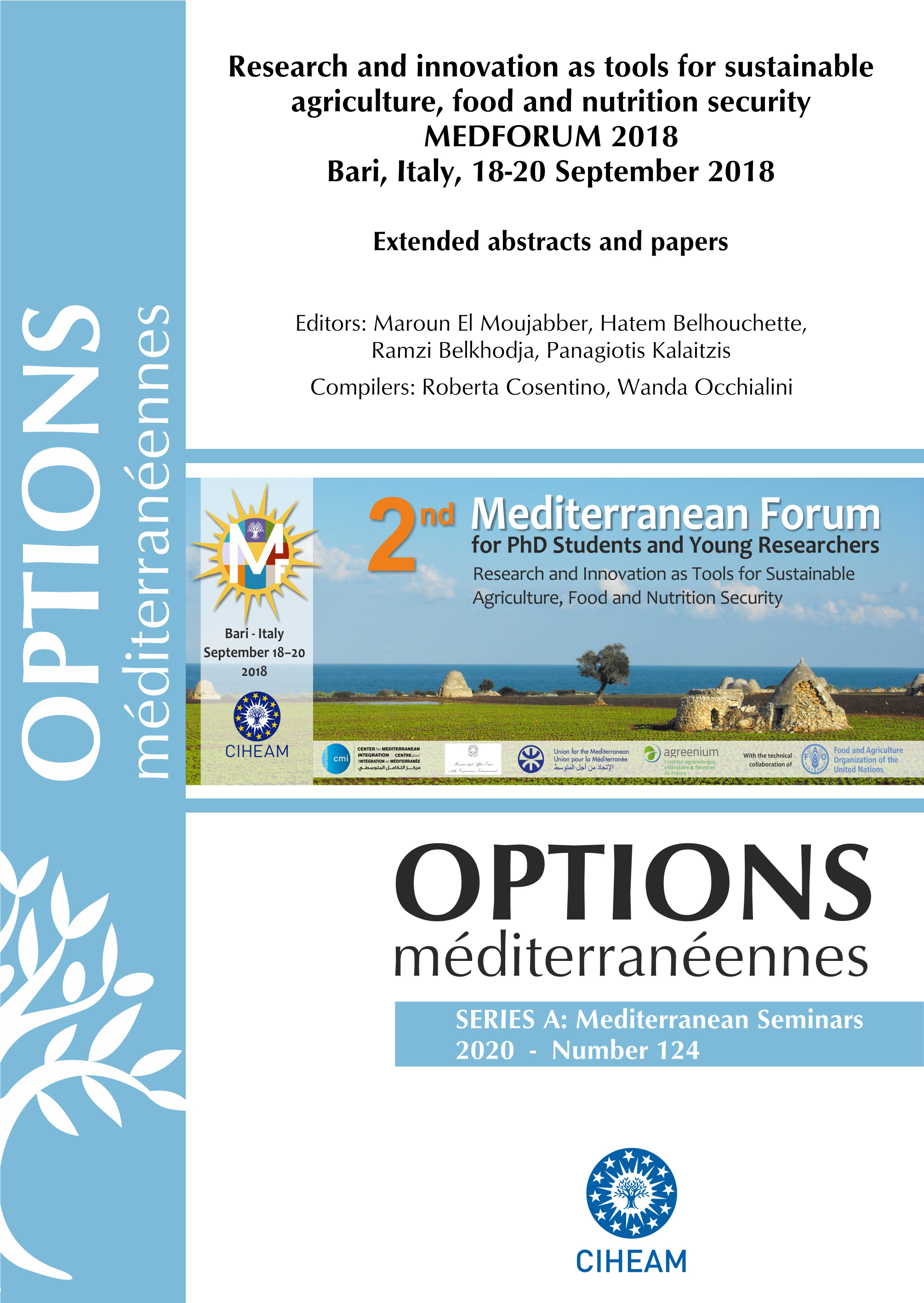| Article précédent | p. 167-173 |
Une agriculture durable au service d’une alimentation durable. Culture de l’olivier dans la steppe algérienne
L’oléiculture a une place considérable dans l’économie de l’Algérie. D’ailleurs, une prise de conscience s’est opérée depuis le début du millénaire à ce sujet pour améliorer la conduite du verger oléicole, réfléchir à son extension sur des terres où l’intensification de la production est possible. Classée septième à l'échelle mondiale, en matière de production d'huile d'olive, et cinquième mondialement pour la production de l'olive de table avec 220.000 t/an (Amarni, 2015). La filière oléicole s’est ouverte de nouveaux espaces ces dernières années, notamment à l’est, les hauts plateaux et au sud du pays, avec une production appréciable. En effet, grâce à la politique du soutien depuis 2000, des localités qui, avant, étaient entièrement indifférentes affichent dernièrement un intérêt important pour la culture de l’olivier vu l’accroissement des besoins de consommation des olives et d’huile d’olive. La présente étude a pour objectif d’analyser les effets induits par le PNDAR mené depuis l’an 2000, à travers une étude de cas dans la zone nord de la wilaya de Djelfa. Les résultats ont révélé que les agriculteurs bénéficiaires du soutien dans la filière en question, n’ont profité que d’un encouragement d’extension des superficies cultivées en oliviers et d’une augmentation de la production d’olives et d’huile d’olive. Cependant, malgré le faible taux de rentabilité financière, les habitudes alimentaires ont été modifiées et la consommation de l’huile d’olive est devenue plus qu’indispensable. Sur le plan écologique, cette culture a aidé à protéger les sols et à améliorer le couvert végétal.
Olive growing has a considerable place in the economy of Algeria. Moreover, an awareness has been raised since the beginning of the millennium on this subject to improve the management of the olive orchard, to think about its extension on lands where intensification of production is possible. Ranked seventh worldwide for olive oil production, and fifth worldwide for table olive production with 220,000 t / year (Amarni, 2015). The olive oil sector has opened up new areas in recent years, notably in the east, the highlands and in the south of the country, with appreciable production. Indeed, thanks to the policy of support since 2000, localities which, before, were entirely indifferent have recently shown significant interest in the cultivation of the olive tree given the increase in consumption needs of olives and olive oil. The purpose of this study is to analyze the effects induced by the PNDAR carried out since 2000, through a case study in the northern area of the province of Djelfa. The results revealed that the farmers who benefited from the support in the sector in question only benefited from an encouragement to extend the areas cultivated with olive trees and an increase in the production of olives and olive oil. olive. However, despite the low financial rate of return, eating habits have been changed and consumption of olive oil has become more than essential. Ecologically, this crop has helped protect soil and improve plant cover.
- [ Afficher ]
- [ Télécharger ]
- [ Exporter la citation ]
Vous pouvez télécharger la citation au format :
- [ Imprimer ]
-
Mots-clés
DEVELOPPEMENT DURABLE, OLEA EUROPAEA, ECO-PRODUITSCiter cet article
Zoubeidi M., Dahane A. Une agriculture durable au service d’une alimentation durable. Culture de l’olivier dans la steppe algérienne. In : El Moujabber M. (ed.), Belhouchette H. (ed.), Belkhodja M. (ed.), Kalaitzis P. (ed.). Research and innovation as tools for sustainable agriculture, food and nutrition security. Bari : CIHEAM, 2020. p. 167-173. (Options Méditerranéennes : Série A. Séminaires Méditerranéens; n. 124). 2. MEDFORUM 2018, 2018/09/18-20, Bari (Italy). http://om.ciheam.org/om/pdf/a124/00007817.pdf



